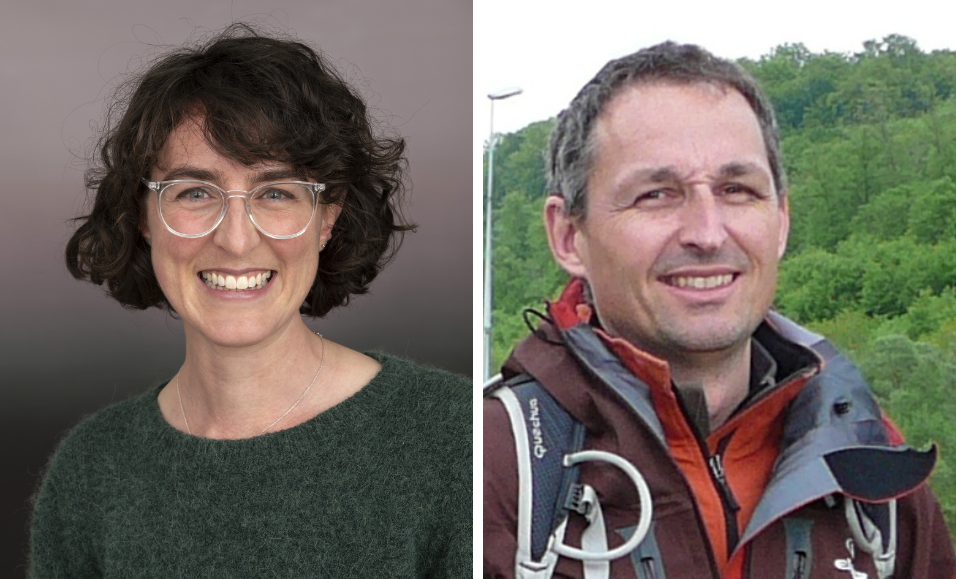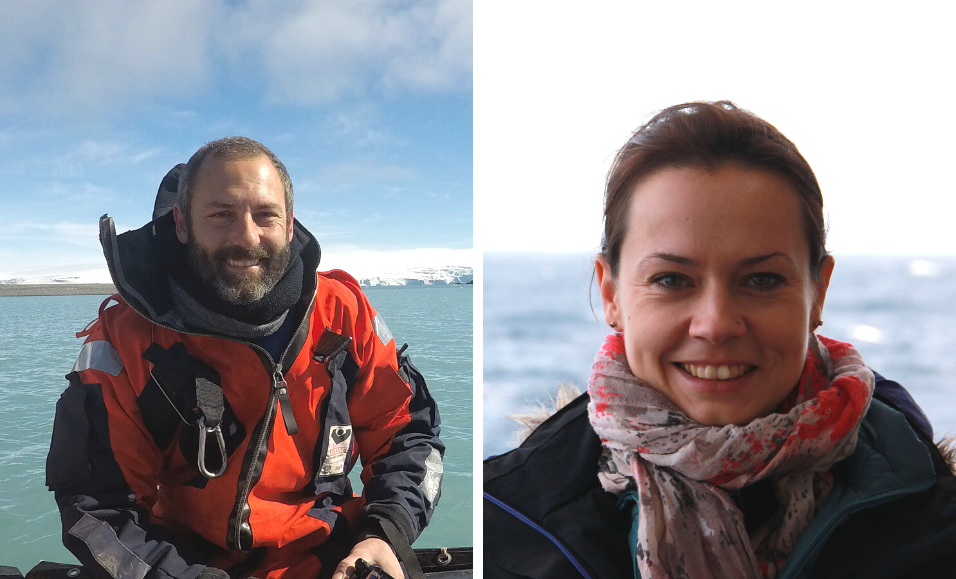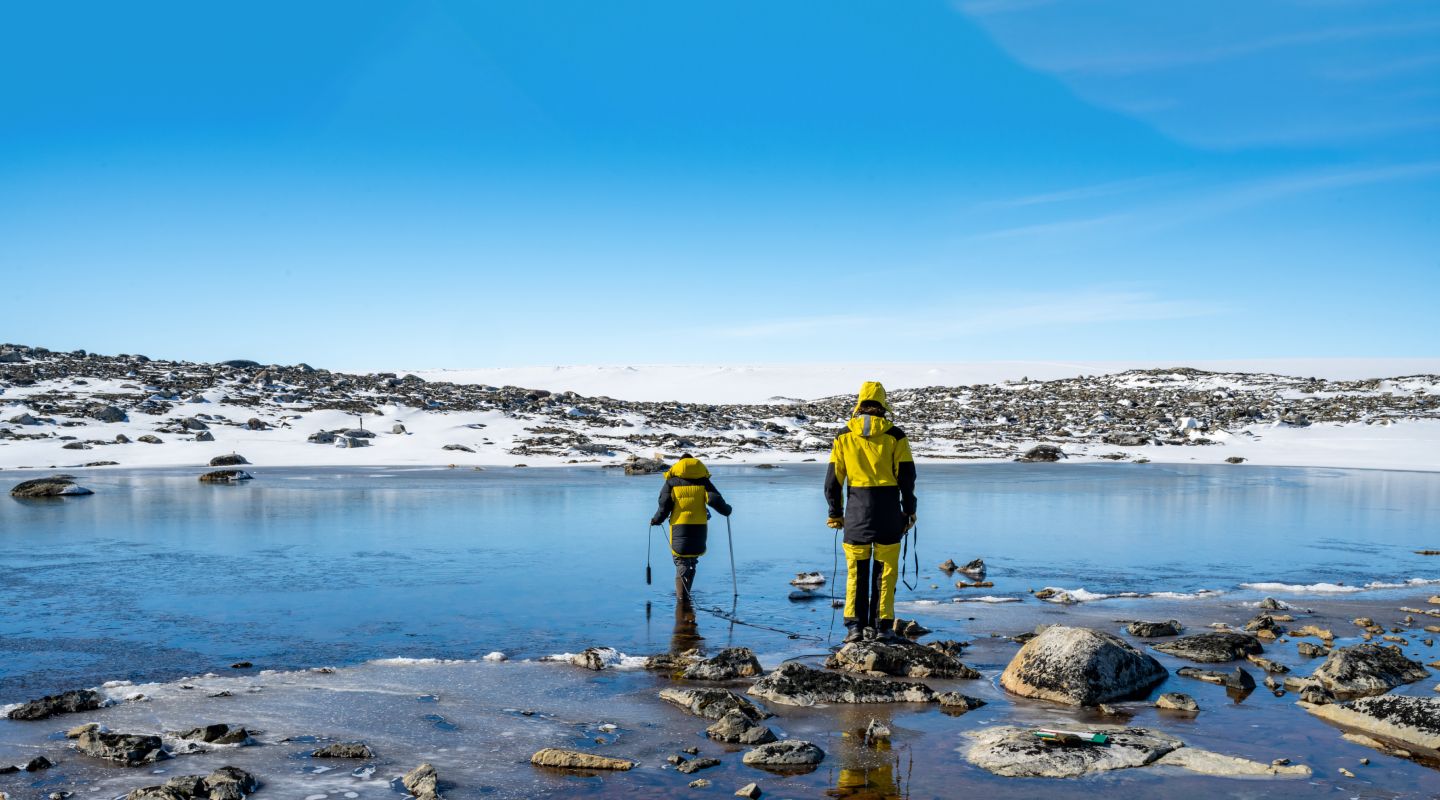French-Australian Research Grant recipients announced

Dr Felicity McCormack (Monash University) and Professor Olivier Gagliardini (Université Grenoble Alpes)

Dr Johan Etourneau (Université de Bordeaux) and Dr Linda Armbrecht (University of Tasmania)
The new $20,000 grant is an initiative of the Embassy of France, the Australian French Association for Research and Innovation (AFRAN) and Monash University, through its ARC SRIEAS Securing Antarctica’s Environmental Future (SAEF).
Professor Thierry Corrège, Science and Higher Education Attaché , said that the scheme aims to foster collaboration between Australia and France on Antarctic and Southern Ocean research.
“The response to this new grant has been excellent, with 15 high-quality proposals covering many areas of polar science. It undoubtedly shows the need for such tools to encourage collaboration between our two countries.”
Professor Steven Chown, the Director of SAEF at Monash University, said that cooperative international research efforts will be a crucial part of securing the future of the region.
“This grant is an exciting opportunity to facilitate scientific exchange between Australia and France. Both of the successful projects will support global efforts to safeguard Antarctica and the Southern Ocean against the impacts of climate change.”
The two successful teams are:
- Dr Felicity McCormack (Monash University) and Professor Olivier Gagliardini (Université Grenoble Alpes)
Towards an ANISOtropic ice flow Model Intercomparison Project
- Dr Linda Armbrecht (University of Tasmania) and Dr Johan Etourneau (Université de Bordeaux)
Interpaleogens – Intercalibrating new paleogenomic methods to investigate the vulnerability of the Antarctic trophic levels to past climate change
Dr McCormack and Professor Gagliardini are leading developers of flow laws for anisotropic ice in their respective ice sheet models, the Ice-sheet and Sea-level System Model and Elmer/Ice. This grant funding will support work to improve understanding of flow laws, by enabling Dr McCormack to visit Prof Gagliardini at the Institut des Geosciences de l’Environnement. There they will collaborate on work to develop a new international initiative, the ANISOtropic ice flow Model Intercomparison Project.
The second successful project, led by Dr Armbrecht and Dr Etourneau will further their research into the use of palaeogenomic techniques to reconstruct past climates and ecosystems to better predict how they will respond in the future. This funding will support Dr Etourneau’s PhD student, Mathilde Bourreau to travel to the University of Tasmania. There she will work with Dr Armbrecht’s PhD student, Prashasti Singh to compare several palaeogenomic techniques to extract, purify and amplify DNA in marine sediment samples. The project will enable them to better understand and improve the efficiency of these techniques and help better understand the response of past Antarctic ecosystems to climate change.
